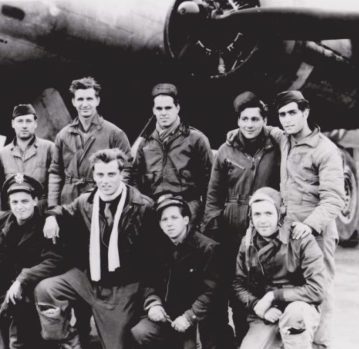Despite the enormous range of excellent historical books which touch on the history of Belgium, Europe, Cambridgeshire and England, there are a few that I would highly recommend. Below are the titles, and a brief synopsis of the book. Most can be bought new or second-hand, without much difficulty (a quick amazon search will find almost all inexpensive and second hand):
Roman England:
An excellent survey on the end of the Roman Empire and the dark ages is Chris Wickham’s work below. Chapters 7, 8, & 9 touch mostly on the dark ages in Britain; however, the whole work is excellent:
Wickham, Chris. “The Inheritance of Rome: Illuminating the Dark Ages, 400-1000.” Penguin Books, 2009.
The Medieval Period:
Someone recently asked me what I’d recommend for an engaging read and an excellent introduction to what England experienced leading up to, during and immediately after the invasion by William I and his forces. The easy answer to that question is Howarth’s 1066, a popular history you won’t be able to set down:
Howarth, David. “1066: The Year of the Conquest.” Penguin Books, 1978.
Probably the greatest book, in my opinion, on understanding the Middle Ages in Europe, France in particular, and how that understanding directly relates to the World’s folly today is Barbara Tuchman’s sadly under-read:
Tuchman, Barbara. “A Distant Mirror: The Calamitous 14th Century.” Ballantine Books, 1978.
Finally, a real treat and a guilty pleasure spanning the end of the Medieval Period and the transition to the Renaissance is:
Manchester, William. “A World Lit Only by Fire: the Medieval Mind and the Renaissance, Portrait of an Age.” Little, Brown, & Co, 1993.
The Napoleonic Wars:
A must have when visiting the Waterloo Battlefield, which provides detailed instructions on what to see and what to walk to while trying to fully comprehend the battle:
Buttery, David. “Waterloo Battlefield Guide.” Second Edition. Pen & Sword Books, 2018.
A recent history of Waterloo, mainly covering the day of the battle itself is which is hard to stop reading:
Kershaw, Robert. “24 Hours at Waterloo: 18 June 1815.” Penguin Books, 2014.
Imperial Europe, the Colonization of Africa and Asia:
The best volume I’ve discovered to understand the motivations, greed and crimes that occurred in the Belgian Congo, and the early 20th Century reaction to it:
Hochschild, Adam. “King Leopold’s Ghost: A Story of Greed, Terror, and Heroism in Colonial Africa.” Mariner Books, 1998.
The Great War:
Martin Gilbert, known for his comprehensive and extremely well written multi-volume biography of Winston Churchill, wrote this excellent work on the Great War which I would recommend to anyone seeking a single monograph to explain the complexity and breadth of the first World War:
Gilbert, Martin. “The First World War: A Complete History.” Henry Holt & Co, 1994.
To understand the origins of the Great War, the best read is Barbara Tuchman’s two-volumes on the end of the Belle Epoque and the first month of the war (which also won the Pulitzer Prize and was famously recommended to his cabinet by U.S. President John F. Kennedy so we ‘don’t repeat the same mistakes’:
Tuchman, Barbara W. “The Proud Tower: A Portrait of the World Before the War, 1890-1914.” Random House, 2014 (first published in 1966).
Tuchman, Barbara W. “The Guns of August: The Outbreak of World War One.” Random House, 2014 (first published in 1962).
For understanding in more detail some of the particular battles, especially which affected Belgium and the borderlands between Belgium, France and Germany, I’d recommend for the Battle of Verdun:
Horne, Allistair. “The Price of Glory: Verdun 1916”. Penguin Books, 1994.
For the Battles of Ypres, the first on visiting the battlefields, the second on understanding the human suffering of the battles:
Reed, Paul. “Walking Ypres.” Pen & Sword Books, 2017.
MacDonald, Lyn. “They Called it Passchendaele: The Story of the Third Battle of Ypres and of the Men Who Fought in it.” Penguin Books, 1978.
And for understanding the experiences of nurses and medical corps in the War, an excellent and harrowing account:
MacDonald, Lyn. “The Roses of No Man’s Land: Nurses on the Western Front.” Penguin Books, 1980.
The Second World War:
Max Hastings has written several excellent books on the Second World War. His writing is very engaging and well researched. He is quick to dispel conventional wisdom about the past if the research leads in a different direction. In 2011, he completed “Inferno: the World at War 1939-1945” which I believe is the best single volume on the war yet written and it provides a foundation of understanding the context of the greater war:
Hastings, Max. “Inferno: The World at War, 1939-1945.” Vintage Books, 2011.
The two works below are companion volumes that make an excellent reference set for understanding the physical locations of both the RAF and USAAF facilities across Cambridgeshire and East Anglia, during the Second World War, and how those facilities have fared over the past 70 years. These are harder to find, and I’ve linked them to amazon.com:
Brooks, Robin J. “Aerodromes of Fighter Command Then and Now”
Freeman, Roger A. and Winston G. Ramsey. “Bases of Bomber Command Then and Now”
Cold War and Beyond:
An excellent, fascinating read on the ongoing archeological efforts across southern England to hunt for lost aircraft, complementing the BBC and ITV’s documentaries is, also linked to amazon.com because it is harder to find:

